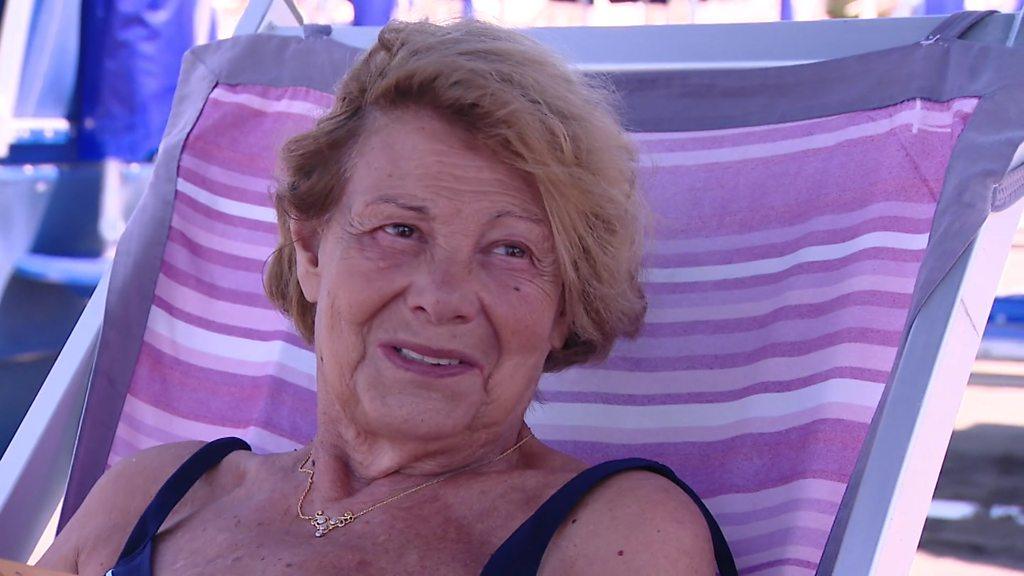Italy PM Conte vows more united Italy as Salvini leaves power
- Published
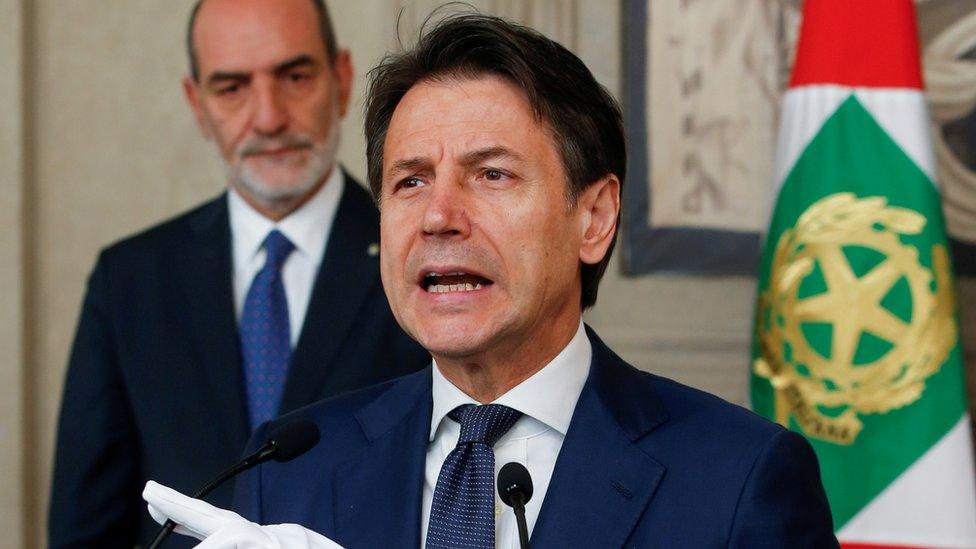
Mr Conte was chosen as prime minister in June 2018 and the populist Five Star Movement insisted he stay on
Caretaker Prime Minister Giuseppe Conte has accepted a mandate to form a new coalition with a vow to lead a "more united, inclusive" Italy, a week after the collapse of his government dominated by nationalists.
He said Italy should play a leading role in Europe, a marked change from the policies of the right-wing League.
League leader Matteo Salvini triggered the downfall of the previous coalition.
His partner, Five Star, has now reached a deal with the centre left.
Mr Conte, an independent ex-law professor, had already savaged Mr Salvini in parliament last week, accusing him of creating a political crisis for "personal and party interests".
After President Sergio Mattarella gave him a mandate to form a new coalition, he said Italy had to make up for lost time as it was in a "very delicate phase".
"It will be a government for the good of the citizens, to modernise the country, to make our nation even more competitive internationally, but also more just, more supportive and more inclusive."
Mr Conte has also accused the League leader of having an obsession with closing ports to migrants, and in one of his last acts as interior minister, Mr Salvini refused to allow a charity rescue ship into Italy carrying 100 migrants. The interior ministry has since agreed to allow women, children and sick people off the Mare Ionio.
The Eurosceptic Mr Salvini has announced a protest in Rome on 19 October, condemning the nascent coalition as conceived in Paris or Brussels.
Who will be in the coalition?
The anti-establishment Five Star Movement has long been hostile to its new prospective partner, the Democratic Party (PD).
But on Wednesday evening the two parties buried the hatchet. They entered talks last week after Mr Conte resigned ahead of a no-confidence motion tabled against him by Mr Salvini.
"All politicians are to blame"
One of the stumbling blocks had been Five Star's insistence on Mr Conte remaining as prime minister.
"We consider it worthwhile to try this experience," the PD's Nicola Zingaretti said after meeting the president, with the aim of forming a government to serve until the next scheduled elections in 2023.
"In difficult times like these, shunning our responsibility to have the courage to try this is something we cannot afford," Mr Zingaretti said.
The markets reacted positively to news of the president's mandate, with the Milan Borsa climbing almost 2%. Italy is the eurozone's third biggest economy and bond yields fell to a record low at one stage on Thursday.
The so-called "spread" between Italian and German 10-year bond yields was also at its narrowest for a year as Mr Conte promised to make economic growth a priority.

A major blow for Salvini

This coalition agreement represents a major setback for the League's leader Matteo Salvini.
For 14 months, he was the dominant figure in Italian politics. But a share of power wasn't enough for him - he wanted outright power.
This led him to overreach. Mr Salvini brought down the government last week in the hope of winning a potential snap election.
But it turns out that his gamble had a fatal flaw. The League Party's leader did not count on the possibility of his opponents teaming up to stop him.
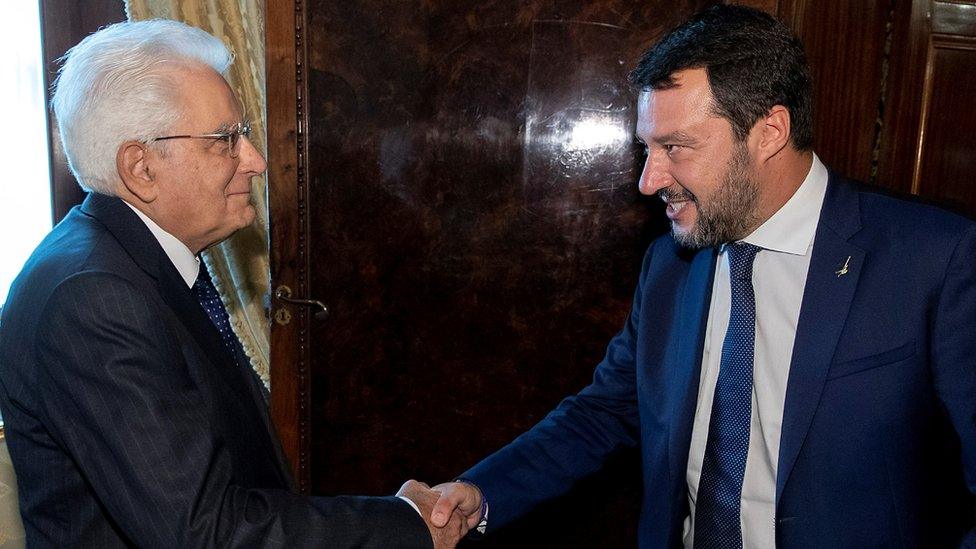
President Sergio Mattarella (L) shakes hands with League party leader Matteo Salvini
A common aim - Stop Salvini - now binds together the Five Star Movement and the Democratic Party in their new coalition. But in order for this administration to last, the two parties may need to find more common ground than their mutual distrust of a single man.
Their coalition will be harried and chased at every step by the man they've sent into sudden opposition.

What will Conte have to do now?
The two parties still have a long way to go to agree a platform and appoint ministers.
Five Star will also require its 100,000 members to back the deal via its controversial online "Rousseau" platform. There are plenty of supporters who will have reservations about a deal with a centre-left, mainstream party that they consider part of the problem in Italian politics.
Some centre-left politicians have also rejected a PD-Five Star coalition, with MEP Carlo Calenda resigning from the leadership in protest.
Mr Conte has promised, once the coalition is confirmed, that the government will proceed quickly to agreeing a new budget for 2020.
Italy has the second biggest debt in the eurozone in proportion to its output and the incoming administration is keen to avoid a rise in VAT (sales tax), which will kick in unless the government can tackle the shortfall elsewhere.
- Published27 August 2019
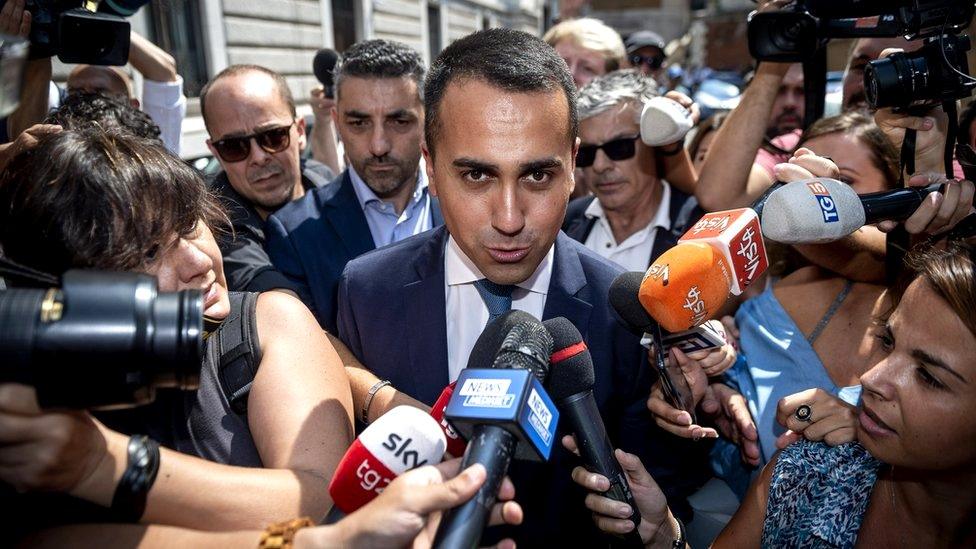
- Published22 August 2019
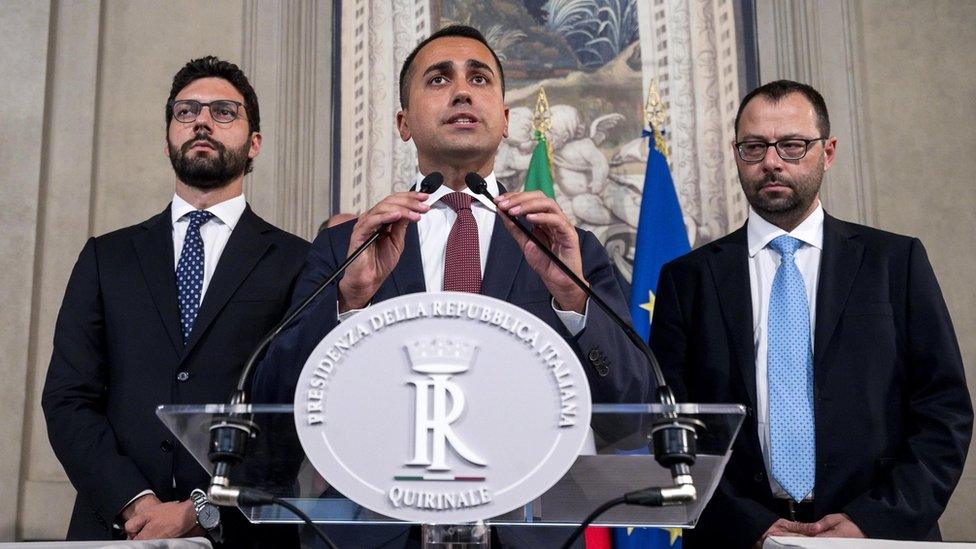
- Published20 August 2019
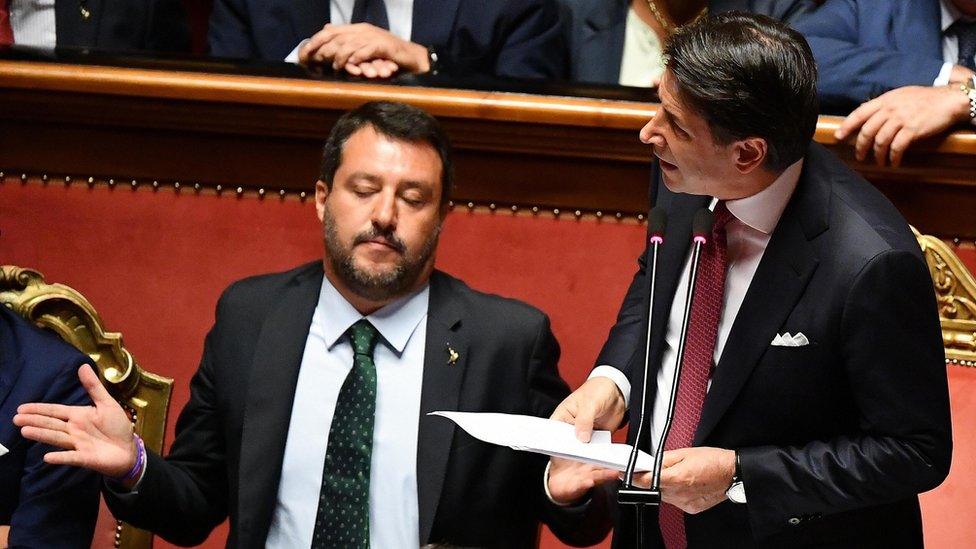
- Published20 August 2019
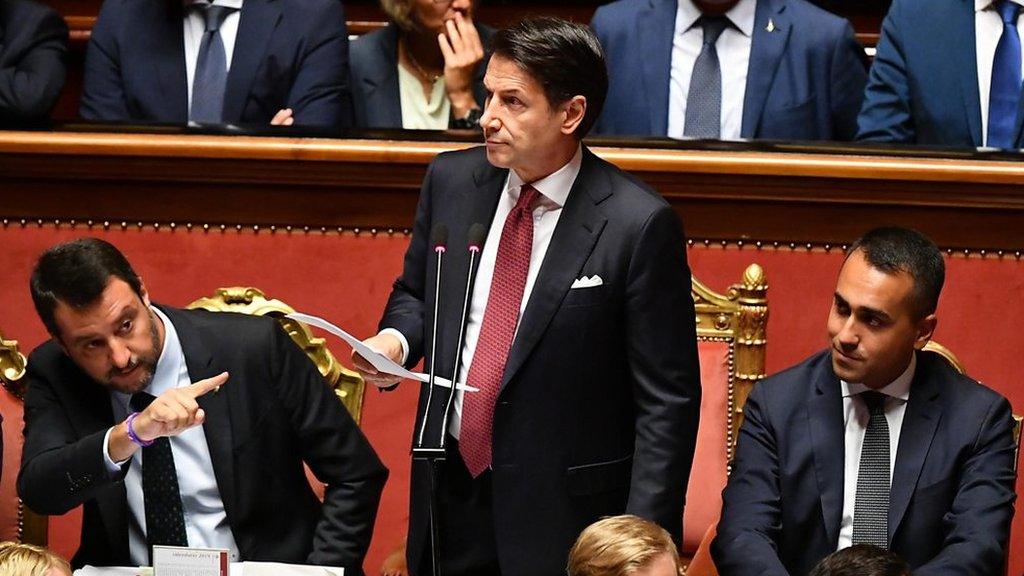
- Published20 August 2019
